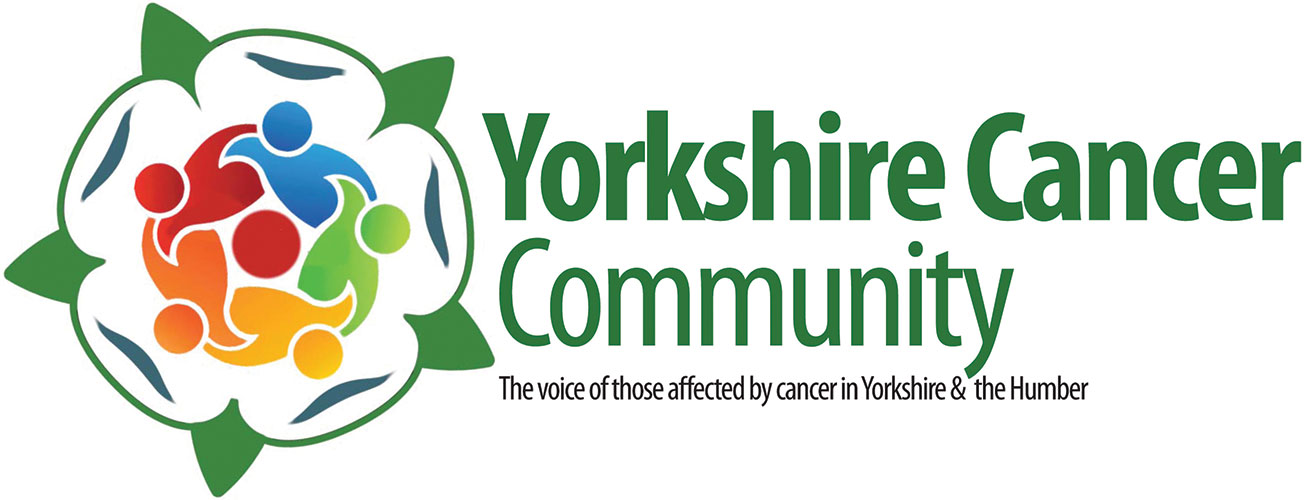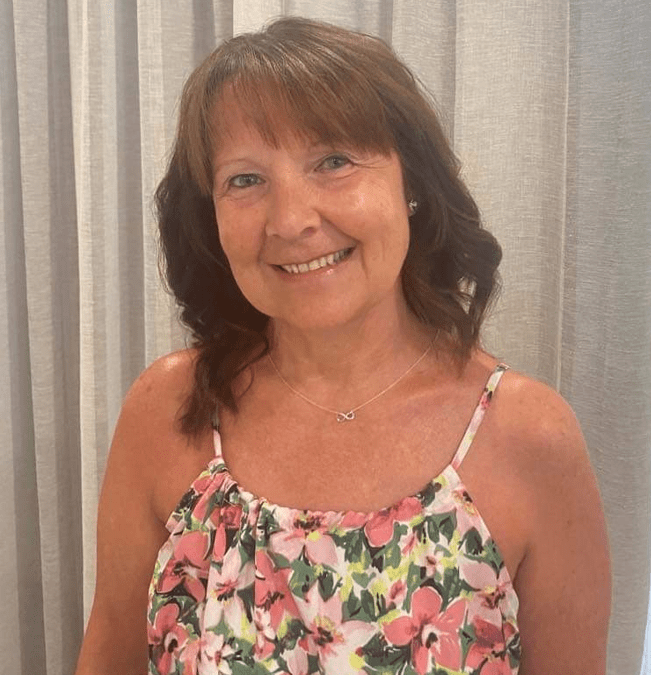Wakefield woman Karen Kilcommons spotted our flyer appealing for Cancer Champions and decided she would like to volunteer.
After being diagnosed with breast cancer in December 2018, Karen learned it had spread to her lymph nodes and liver, meaning she will be on treatment for the foreseeable future.
“It’s something I have learned to live with, and if I can help other people I’d really like to,” explained Karen.
One of the key messages behind Cancer SMART – to be aware of your body so you spot anything unusual and persistent – struck a chord with Karen.
Aged 49, she had attended an appointment for her first mammogram. which are usually offered to women aged 50 -70.
The results came back clear, but Karen instinctively knew something was wrong.
“I couldn’t feel a lump but I’d noticed a couple of times that one of my nipples would become inverted and then go back to normal.”
Although Karen’s GP couldn’t see anything, she referred her to a breast clinic where they diagnosed HER2+ breast cancer.
For Karen, although this was disturbing news, she was reassured that she had been taken seriously, and that while mammograms pick up the majority of cancers, there are some that can be missed.
Unfortunately, this wasn’t the end of the bad news. Further tests revealed the cancer had spread to her lymph nodes, and a full CT scan detected three tumours in her liver.
Karen’s treatment included chemotherapy, surgery and radiotherapy but she will be on Herceptin and Pertuzumab for the foreseeable future and has regular scans to see if the cancer has spread.
During the pandemic, Karen continued to receive her regular scans but appointments with the oncologist were carried out over the phone.
It was when appointments had returned to being delivered face to face, Karen received news that was completely unexpected.
An oncologist who was standing in from another hospital had reviewed Karen’s notes before the appointment and suggested there was a possibility that she may not have cancer in her liver after all. She explained the diagnosis had been taken from an MRI and CT scan, so no biopsies of the liver had been taken.
The tumours in her liver looked suspicious, and two have now disappeared. However, this could be due to treatment.
For Karen this is such a difficult dilemma. The treatment she receives could be doing more harm than good, but equally it may be responsible for keeping her well. To consider ending her treatment is not a decision she can make alone.
“I’ve never seen the same oncologist twice so I can’t ask their opinion,” she explained.
Options may include asking for further scans, a review from another hospital or for her case to be referred to a MDT ( multi disciplinary team meeting).
While dealing with this bombshell, Karen feels fortunate to work for a caring employer who provide support for employees experiencing cancer.
First Direct, who are based in Leeds, partnered with Maggie’s as they were developing a new centre for people affected by cancer, in the grounds of St James’s University Hospital, Leeds.
First Direct now offer support via zoom or the intranet to anyone affected by cancer. They also raised more than £400,000 for the charity.
It’s been helpful for Karen to be able to talk openly about her cancer journey and also feel supported by her employer.
“I had to take one year off because of the treatment. By the time I returned I had lost two stones in weight.
The help we receive at work includes signposting to sources of help and support for managers who may be dealing with an employee affected by cancer for the first time,” she added.
Karen has continued to visit Maggie’s beautiful centre in Leeds and helps to give back by fundraising for this worthwhile charity.
Now she would also like to offer her time raising awareness as part of our Cancer SMART initiative.
Said Karen: “ If I can ‘do my bit’ and raise awareness to help others then I’d be more than happy to volunteer my time.”

